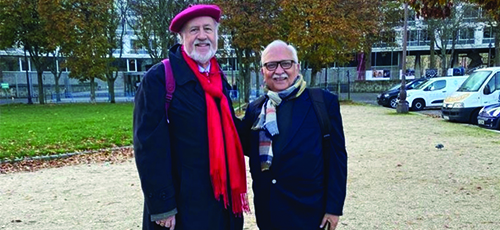Our UNESCO Chair was created in 2012 at the request of UNESCO with whom we had worked on the 2009 World Conference on Higher Education. During the first five years of our work as Chairs, we carried out two major international research projects to gain insights into the ‘state-of-the-art’ around the world in the field of community-university research partnerships and training for community-based participatory research. As a result of these studies, which can be found as free downloadable books in our website (www.unescochair-cbrsr.org), we learned that young people working in community sectors as well as in universities had a difficult time accessing learning opportunities that provided insights into the complexities of this kind of work. University courses most often lacked engagement in community. Community-led courses often lacked the theoretical aspects of the work.

After consultations with our partners in various parts of the world, we decided to design a pedagogical model that could offer opportunities for the next generation of young people to learn both the theories and practices of community-based participatory research. We named this the Knowledge for Change (K4C) Global Consortium for the Training of Community-Based Participatory Research. At the heart of the consortium, we placed the K4C Hub. A K4C Hub is a formal partnership between a community organisation and a higher education institution whereby the partners agree to work together to provide learning opportunities to both community workers and university students. The hubs are aligned as well with one or more of the United Nations Sustainable Development Goals.
Over the years since the Global Consortium was launched, potential hubs have indicated their interest to our Chair. Upon working out their own MoUs between community and academic partners, the hubs have nominated up to five mentors to take the Mentor Training Programme (MTP) that is offered as a 21-week on-line and face-to-face basis (COVID permitting). Upon completion of the MTP, the hubs are free to begin teaching their own courses in their regions. We offer two cohorts of the MTP each year.
We are delighted to share information on the hubs that currently form the heart of the K4C Global Consortium. We invite anyone interested in exploring the creation of a K4C hub in their part of the world to contact our Chair.
Rajesh Tandon and Budd Hall, Co-Chairs, UNESCO Chair in Community-Based Research and Social Responsibility in Higher Education




